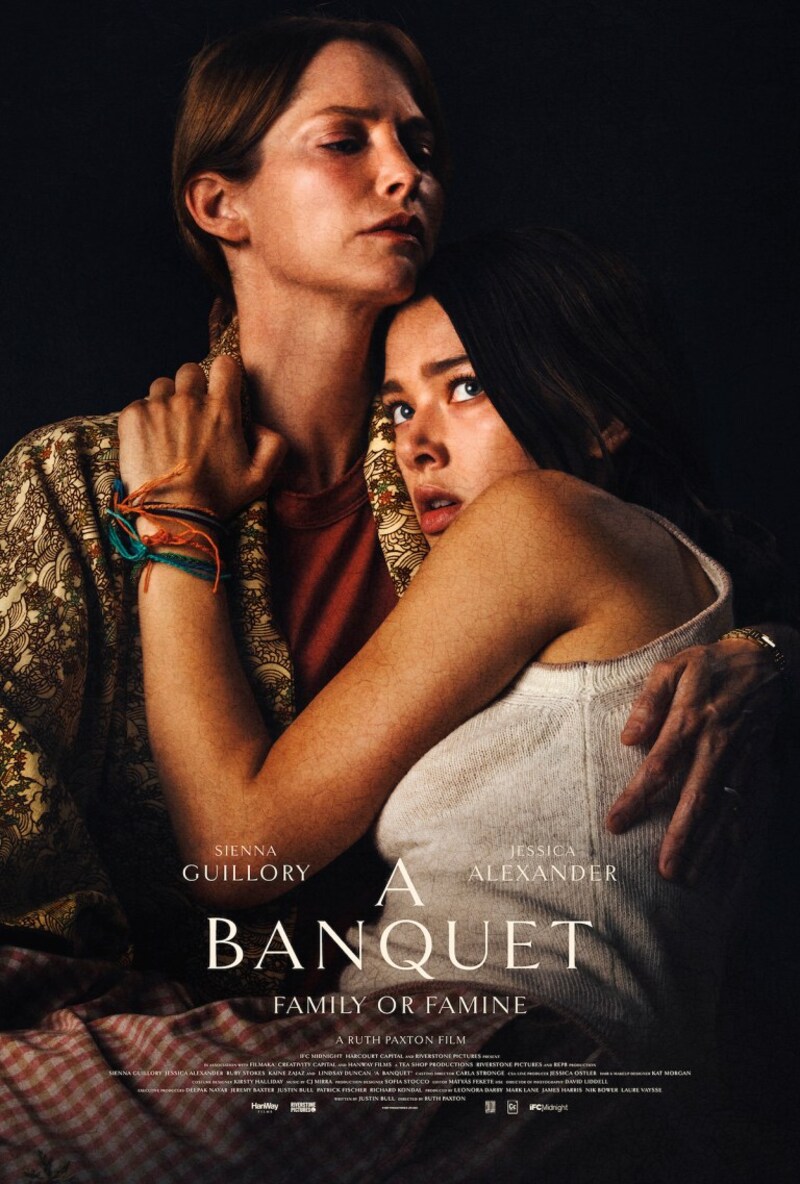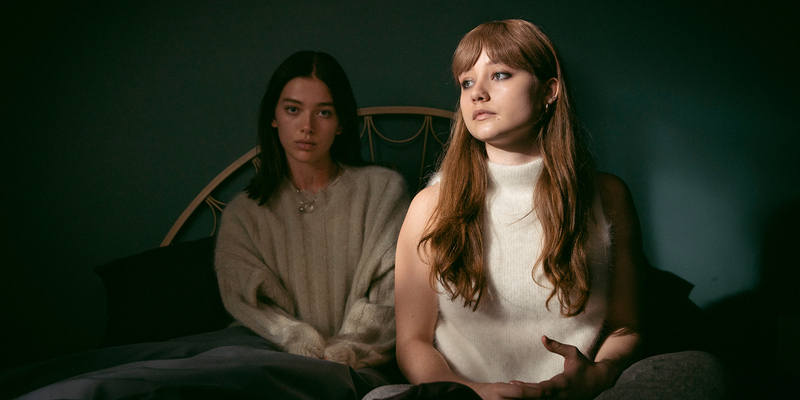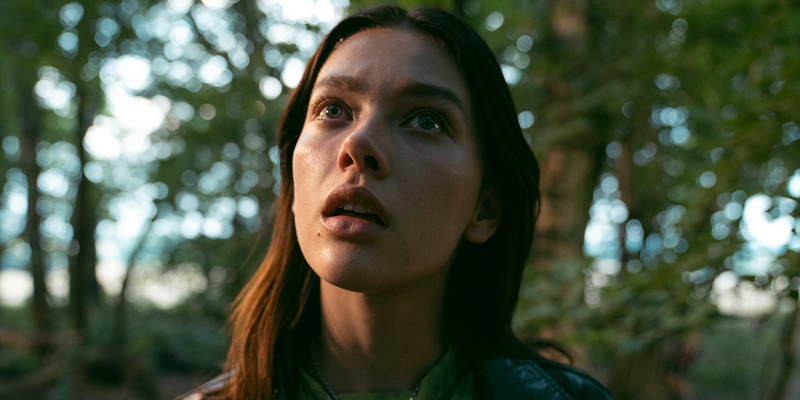
Review by
Eric Hillis
Directed by: Ruth Paxton
Starring: Sienna Guillory, Jessica Alexander, Ruby Stokes, Kaine Zajaz, Lindsay Duncan

We now know a blood moon is simply a phenomenon caused by a total
lunar eclipse, but throughout history the sight of a crimson moon was
considered a portent of impending disaster by many cultures. "The sun
will turn into darkness, and the moon into blood, before the great and
terrible day of the Lord comes," reads the Book of Joel, warning of
the coming end times. Later in the Bible, a blood moon pops up in
Revelations, where it is written, "The sun became black as sackcloth
of hair, and the moon became as blood."
When European colonists discovered the truth behind a blood moon,
they used the phenomenon to scare native populations into
subservience. Christopher Columbus is said to have used his knowledge
of a coming eclipse to convince the natives of what is now Jamaica
that he was in communication with God. With his 1977 film
The Last Wave, Peter Weir flipped this idea on its head, with Australian
aborigines having knowledge of an impending catastrophe unknown to
white people, save for Richard Chamberlain's protagonist, who finds
himself sharing their prophecy through dreams. With his 2011 film
Take Shelter, director Jeff Nichols gave us something of an unofficial remake of
Weir's film, sans the colonial commentary.

Director Ruth Paxton's feature debut, A Banquet, is a further distillation of Weir's film, setting its narrative
almost exclusively within the walls of a middle class British suburban
home. It takes us back to the idea of a blood moon as an apocalyptic
portent, with teenager Betsey (Jessica Alexander) stumbling
across such a sight in the night sky when she wanders off from a
party. Betsey seems to be the only witness to the phenomenon however,
and in the days after begins displaying curious symptoms.
Much to the chagrin of her stressed out, widowed mother Holly (Sienna Guillory), Betsey refuses to eat. Holly passes it off as anorexia, while
Betsey's grandmother (Lindsay Duncan) accuses the teen of
simply seeking attention. What they can't explain is how Betsey sheds
no weight. She's weighed twice a day, with the same result of nine
stone returned each time. Betsey's condition evolves into random
catatonic blackouts in which she begins speaking about an impending,
ambiguous catastrophe. At times she has manic spasms, as though
possessed by a demon.

Paxton's film plays like an amalgamation of various previous movies.
There's a lot of The Exorcist, and you imagine that were this not set among the secular residents
of modern middle class Britain, a priest would no doubt be called in
at some point. The Last Wave and
Take Shelter are obvious touchstones, but there's also
something of Jeff Nichols'
Midnight Special, as Holly begins to realise she may be the parent to a child with
special, ethereal powers. The clinical surrounds the film plays out
among, coupled with its female focus, are reminiscent of Todd Haynes'
Safe. There's even a moment that wouldn't be out of place in James
Wan's recent schlockfest
Malignant.
As such, A Banquet feels all too familiar. It's
undecided whether Betsey or Holly is the film's main focus, and both
come off as under-served, particularly the latter, whose grief over
her husband's death (detailed in a prologue) is never quite explored
as much as you might expect. Guillory is very good here, channelling a
performance somewhere between Tilda Swinton and Mia Farrow, yet
there's something unsympathetic about Holly, and it's difficult to
figure out why that should be the case. We should have sympathy for
everything she's enduring, but there's an unexplored sinister side to
Holly, as though Guillory's performance contains remnants of an
excised subplot from an earlier script draft.

With its slow burn, ambiguous storytelling, focus on trauma and icy
aesthetic, A Banquet is ready made to be designated the
latest example of "elevated horror." I'm not sure it actually elevates
anything though. There's nothing here we haven't seen explored in more
depth, and with more atmosphere, in the many films it appears to be
drawing inspiration from.

